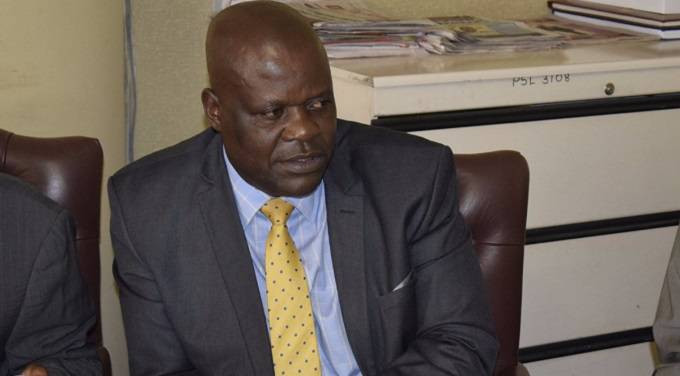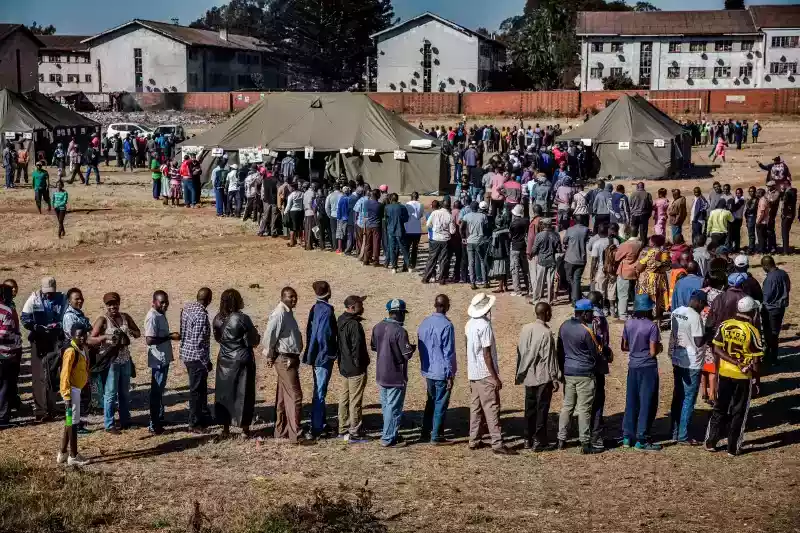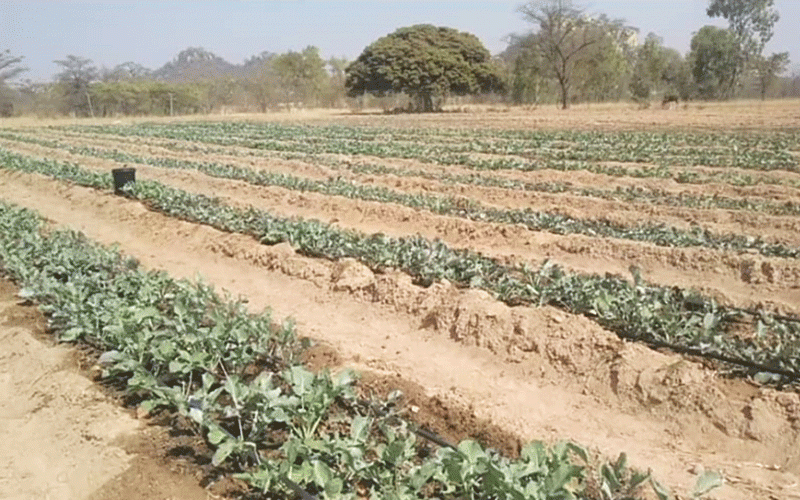
CLIMATE change is adversely impacting rural households that are mostly dependent on rain-fed agriculture and this led to calls for the adoption of strategies that can assist farmers adapt to the phenomenon.
Byron Mutingwende
CARE International Zimbabwe says smallholder farmers will not survive unless they conform to changes in climatic conditions.

The organisation believes there is need for various stakeholders to participate in building the resilience of their communities.
Taringana Makiwa, a Chivi rural district agricultural extension officer, said it was imperative for communities to know about the drastic climatic changes in order for them to adequately prepare for their planting seasons.
“It is essential for farmers to know about the amount of rainfall expected during a particular year, whether or not there will be thunderstorms, lightning, flood, hail or frost so they can take preventative measures,” Makiwa said.
“Information on temperature trends and disease outbreaks will also inform the farmer on whether to plant crops or wait until pesticides are available or when the weather is good.”
- Chamisa under fire over US$120K donation
- Mavhunga puts DeMbare into Chibuku quarterfinals
- Pension funds bet on Cabora Bassa oilfields
- Councils defy govt fire tender directive
Keep Reading
Makiwa said lack of such information leads to a low yield or destruction of a crop.

There are several options for adaptation and mitigation to climate change.
These include capacitating the Meteorological services department with human and capital resources, training of extension staff and farmers in relevant forecast interpretation skills and soil and water conservation works.
“Contour construction, infiltration pits in the fields, afforestation through planting of vativa grass as windbreaks and construction of sand traps are very crucial,” Edmore Matsavi, CARE International Zimbabwe engineer for Masvingo Province said.
Matsavi said there was need to create awareness on conservation works and weather hazards. He called for the efficient utilisation of water resources to combat climate change.
“Weather and climate information should be readily available to the intended recipients through reliable dissemination channels and in a user friendly language. Platforms for meteorological information dissemination should be increased,” he said.
“The Meteorological Services Department should partner with developmental organisations and Agritex in climate change adaptation programmes and research on indigenous knowledge systems and how it can be linked with climate science. There is also need for weather insurance schemes.”

According to experts, conservation agriculture is an adaptive and mitigation option as it encourages efficient utilisation of resources including land, inputs and labour. If adhered to, more yields would be realised per unit area.
Matthias Mataki, an agronomist with the Ministry of Agriculture, Mechanisation and Irrigation Services said organic farming was an environmentally friendly farming method essential for soil conservation.
He said there is need to grow short season varieties of small grains in drought-prone areas. Mataki encouraged the adoption of water-harvesting techniques for supplementary irrigation, including dam construction and storm-water harvesting techniques.
“Soil and water conservation techniques include construction of contours, infiltration pits, intercropping, and crop rotation. It is also important to plant earlier to take advantage of potential higher yields, but crop staggering also reduces risk of crop failure,” Mataki said.
He said there was a link between gender and climate change issues. Mataki said women find it easier to understand climate change issues compared to men.
The challenge, he said, was in the implementation of information and knowledge gained.
“Most women are more receptive to information, but cannot implement or use such information to their advantage. In smallholder agriculture, the choice of crops and hectrage is determined by men making it difficult for women to influence decisions on climate change adaptation strategies at household level,” said CARE International Zimbabwe acting country director in charge of programmes, Heather Van Sice.
“Research has also shown that in female headed households, widowed women may not control draught power as they are not in control of livestock hence may not be able to plant at the right time.”











